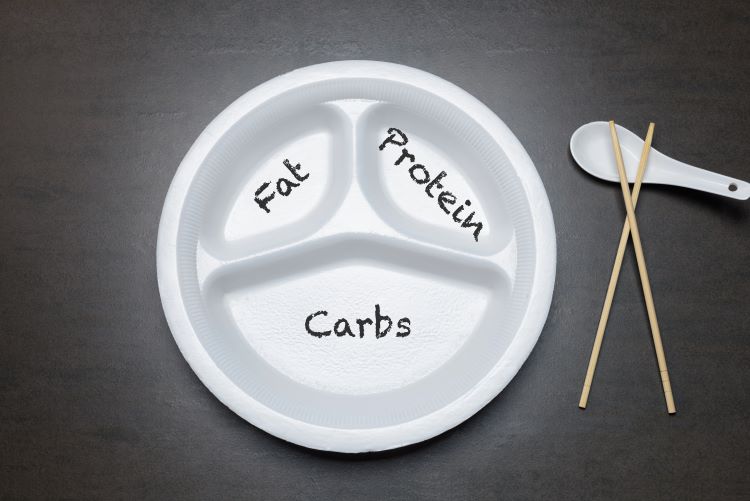Understand the role macronutrients play in supporting good nutrition and efficient recovery…
If you want to supplement for muscle growth, it’s important to understand macronutrients and the vital roles they play. Macronutrients are the three main nutrients that our bodies require in large quantities to function optimally: carbohydrates, proteins and fats. Each of these macronutrients plays a unique role in providing energy, supporting muscle growth and repair, and maintaining overall health.
Carbohydrates
Carbohydrates are the body’s preferred energy source. They come in two main types: simple and complex. Simple carbohydrates are found in processed foods like sweets and white bread, while complex carbs are in whole grains, fruits and vegetables. Complex carbs contain fibre, which slows glucose release, providing sustained energy.
Simple carbs provide a quick energy fix but lack essential nutrients, which can spike blood sugar, leaving you with a post-eating slump. Opting for complex carbohydrates like wholemeal bread, sweet potatoes, brown rice and quinoa will help fuel your workouts for longer and support recovery. Going wholemeal also helps you reap the gut-boosting benefits of fiber.
Protein
Protein is made up of essential amino acids, which are the body’s building blocks. It’s fundamental for building and repairing muscles, as well as maintaining healthy tissues and organs. Good quality sources of protein include lean meats, fish, eggs, dairy products and plant-based sources, such as beans, tofu and quinoa.
For men engaging in regular exercise, consuming enough protein is crucial for supporting muscle growth and repair. Aim for a variety of protein sources to ensure you get all the essential amino acids your body needs.
Fats
Fats, like carbohydrates, often receive a tough time in the media because they are more calorific. However, despite their bad reputation, fats are essential for hormone production, nutrient absorption and overall health. Aim to include healthy sources of fat, such as those found in avocados, nuts, seeds, olive oil and fatty fish. These sources are beneficial for brain function and help to regulate inflammation.
It’s important to be mindful of over consuming saturated fats, which are those that are solid at room temperature (e.g. butter and margarine). When it comes to saturated fats, pay attention to portion sizes as they are dense in LDL (bad) cholesterol and are one of the contributory risk factors for heart disease. Balancing your fat intake and focusing on healthier options is important for maintaining optimal health and supporting your fitness goals.
Macronutrient ratios
The ideal macronutrient ratio may vary based on individual factors such as age, weight, activity level and fitness goals. A registered dietician or nutritionist can help you personalise your macronutrient needs to fuel your performance. Whether you’re aiming to build muscle, lose weight or improve your health, focusing on whole, nutrient-rich foods to meet your macronutrient needs will help support your journey towards fitness success and overall health.






